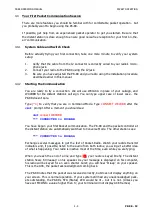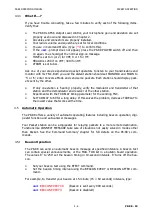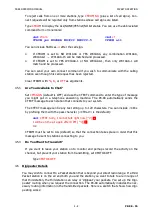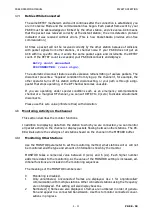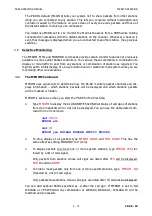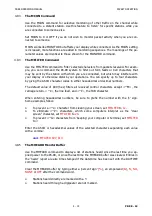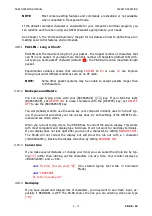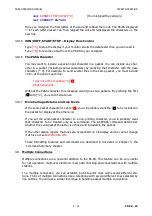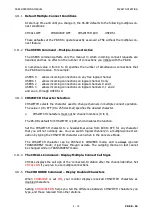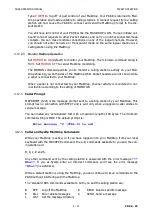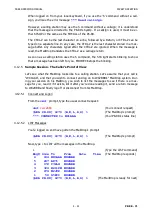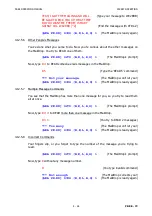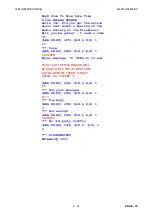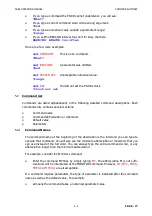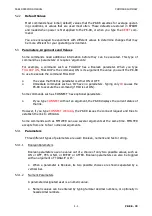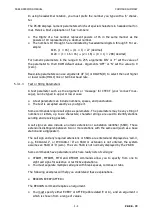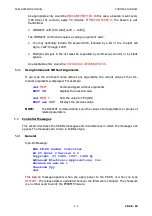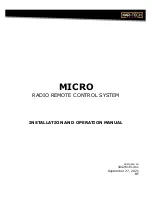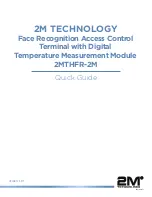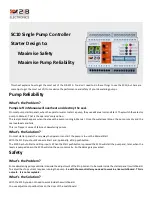
PK-88 OPERATING MANUAL
PACKET OPERATION
4 - 18
PK-88 - 65
cmd:
CONNECT KB7\\\WA7[^R]
(You mistyped the call sign.)
cmd:CONNECT WA7GXD
Here you mistyped the first letters of the call and rubbed them out. The PK-88 displayed
'\' for each letter erased. You then retyped the call and redisplayed the characters on the
new line.
4.10.5
XON|XOFF, START|STOP – Display Flow Control
Type
[^S]
to stop the display if your monitor scrolls the data faster than you can read it.
Type
[^Q]
to resume output from the PK-88 to your computer.
4.10.6
The PASS Character
You may want to include a special input character in a packet. You can include any char-
acter in a packet (including special characters) by prefixing that character with the pass
character, [^V]. For example, to send several lines in the same packet, you must include
<CR> at the end of each line:
I was not at the meeting.[^V][
↵
]
What happened?
Without the PASS character, this message would go as two packets. By prefixing the first
[
↵
] with [^V], you send it all at once.
4.10.7
More Carriage Returns and Line Feeds
If the send-packet character is set to
[
↵
]
, you will probably want the [
↵
] to be included in
the packet for display at the other end.
If you set the send-packet character to a non-printing character, you will probably want
that character to be treated only as a command. The ACRPACK command determines
whether the send-packet character is echoed and included in the packet.
If the other station reports that lines are overprinted on his display and he cannot change
it at his end, set
ALFPACK
to
ON
.
These formatting features and commands are described in full detail in Chapter 5, the
'Command Summary' chapter.
4.11
Multiple Connections
Multiple connections are a powerful addition to the PK-88. This feature can be very useful
for net operation, multi-user electronic mail, path checking and conversations with multiple
stations.
In a multiple connection, you can establish 'point-to-point' links with several different sta-
tions. Think of multiple connections like a telephone with several different lines selected by
line buttons. You will use a similar technique in handling packet multiple connections.


